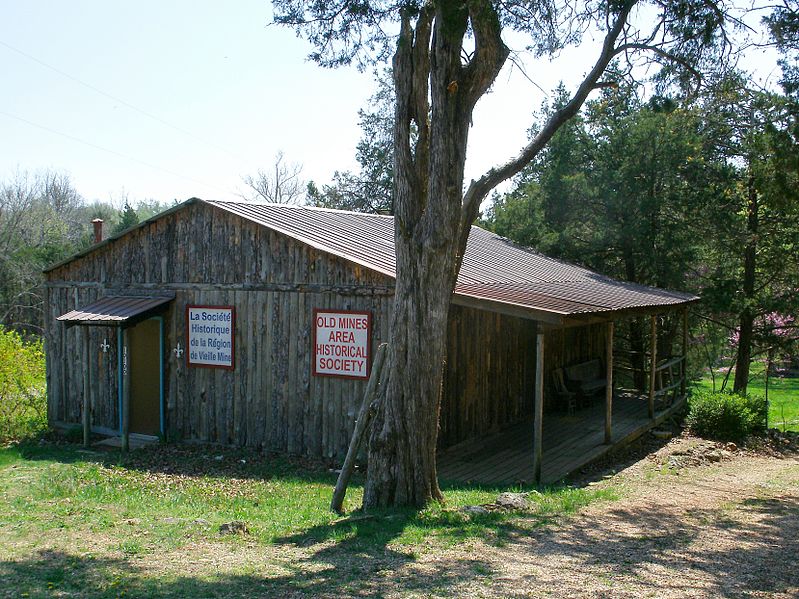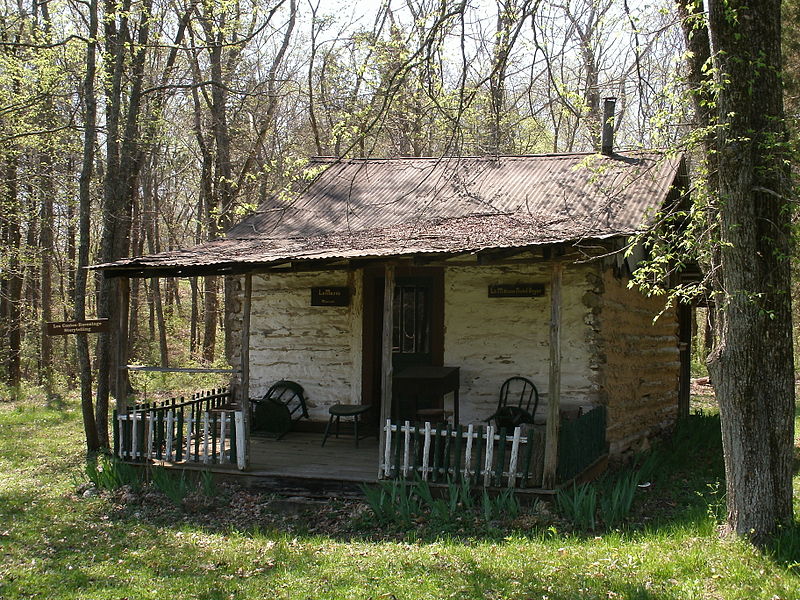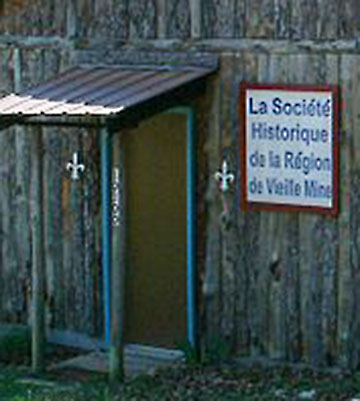Here’s a nugget of geographical trivia that proves romance can be found in the most unexpected places.
First, think of places where people speak French …
France, sure.
Canada.
Parts of Africa.
The far-flung Polynesian islands?

Photo by Fred via Wikimedia Commons
No denying the romance there.
But I’ll bet you didn’t include Old Mines, Missouri.
It’s true.
Check out the sign beside the door in the photo below.

Photo by Kbh3rd via Wikimedia Commons
That, my friend, is French.
Now, I know what you’re assuming, but it’s not just an attempt by the local Historical Society to fancy up an old log cabin. The sign is actually a reminder of bygone days when enterprising French miners pitched camp in southeastern Missouri and started digging, hoping to find silver among the area’s plentiful lead deposits. Old Mines never yielded much in the way of riches to the French settlers, but their culture and language was indelibly marked upon the region. Shaped by time as well as Creole and Indian influences, the locals’ speech developed a unique dialect that became known as Pawpaw French (after the native fruit-bearing tree).

Photo by Scott Bauer, USDA, via Wikimedia Commons
Today, however, only a handful of Old Mines residents still speak the language, and this fascinating scrap of American heritage is hovering near extinction.

Photo by Kbh3rd via Wikimedia Commons
Take a minute to travel to Old Mines via the video below, and listen to the lilting words of Natalie Villmer, one of the last speakers of this fading tongue, as she explains its history and sings its praises (in Pawpaw, of course).






















































Oh, La, La, Quel dommage!
This is so interesting. I wonder if it sounds like the creole they speak in New Orleans area? I enjoy to learn about these little pockets of unique culture in our country, and it is sad that they are no longer sustainable. I wonder if the Paw Paws have special foods and cooking habits like the creoles?
What a profound statement – that the language was associated with lack of education. It obviously isn’t the first time a language became extinct, but it is sad just the same because so much more than just the language is lost. Historical facts and wisdoms, traditions, even cultural personality traits disappear as well. It is always nice when the media is used to bring these things to our attention.
Good morning Miss Cindi!
Good morning! And a gorgeous one it is today!
Having lived in French speaking Seychelles, where the French is very similar to Louisiana creole, I know what is being lost. When I was in Paris, I had fun speaking ” Island patois ” just to shock the Parisians. It is usually spoken by Black native speakers on the islands and a blonde American woman speaking it was surely
entertaining to them. I made lots of friends with the usually stiff parisians using that language.